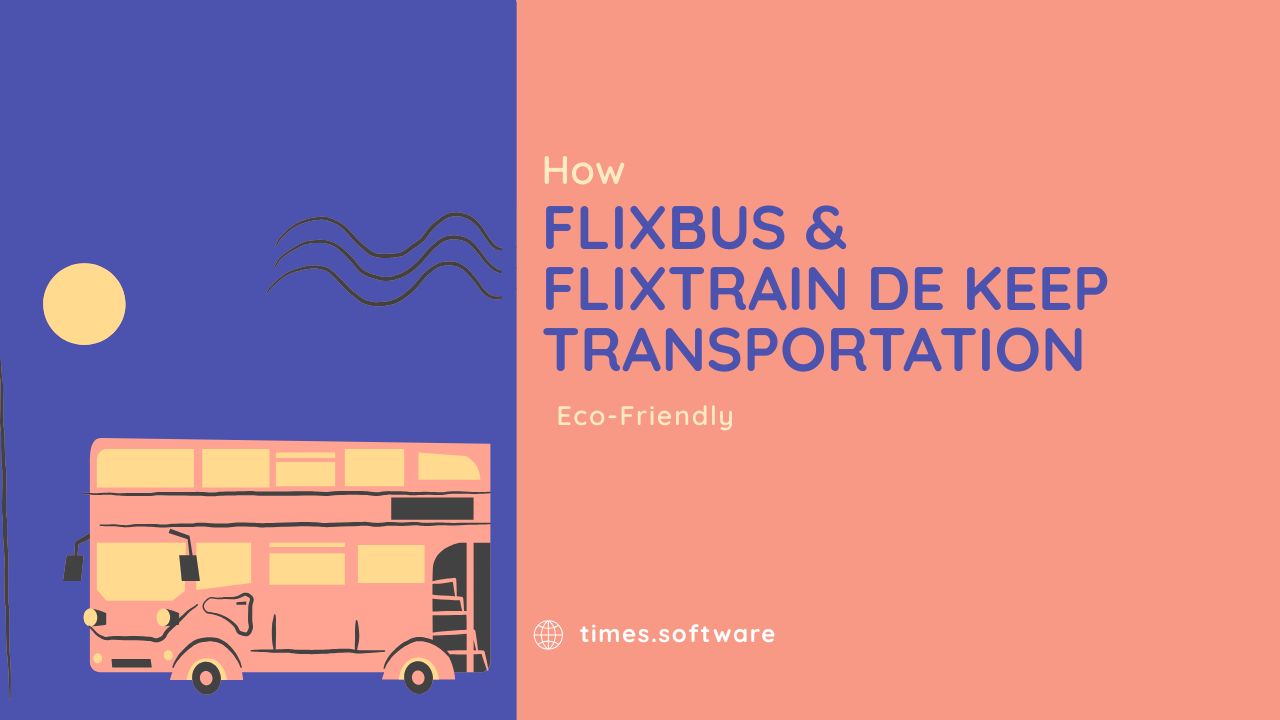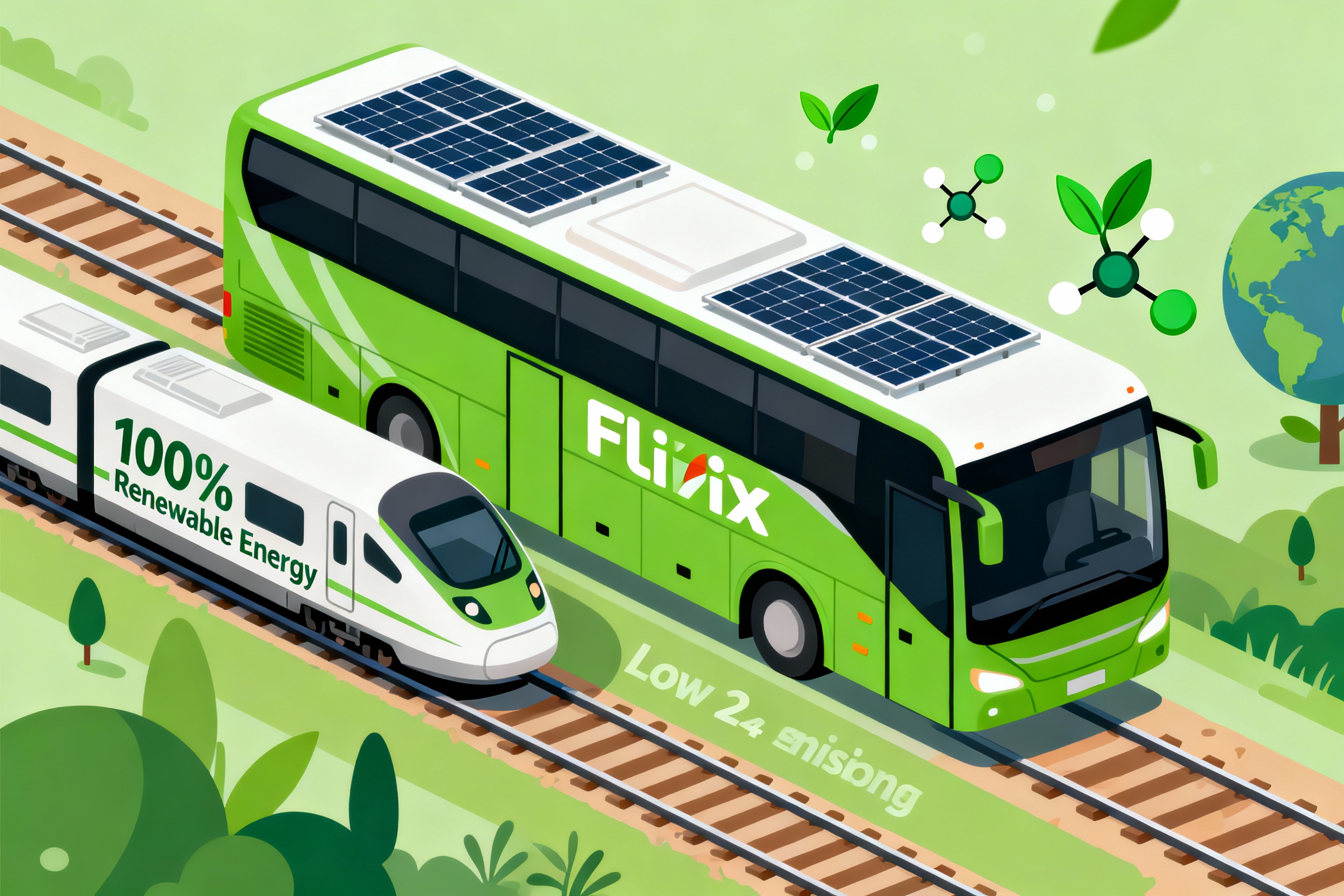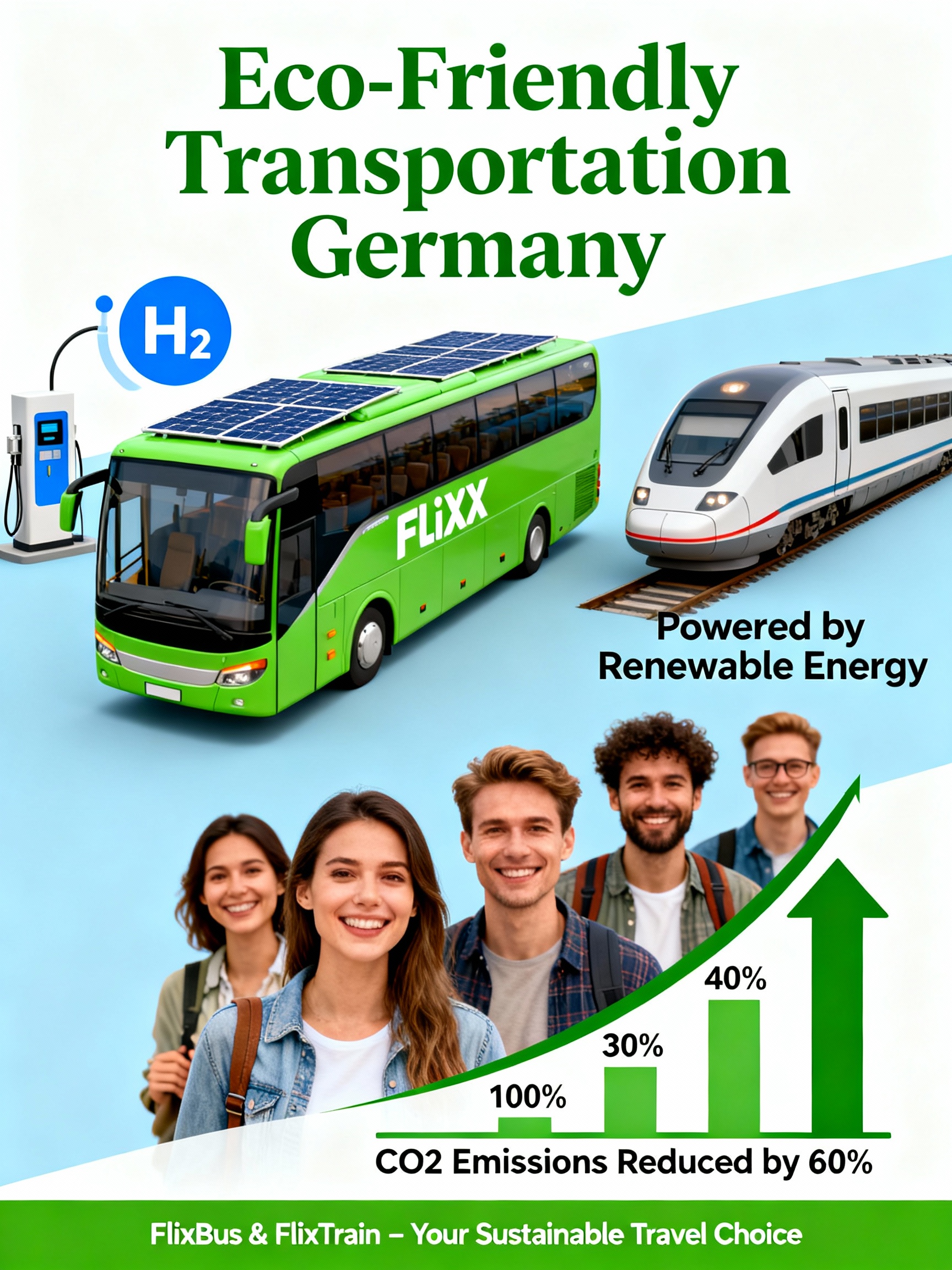
How FlixBus & FlixTrain DE Keep Transportation Eco-Friendly
Discover how FlixBus US is transforming business travel for marketing professionals with its affordable fares, reliable connectivity, and modern onboard amenities. This blog post explores why FlixBus US is becoming the top choice for marketers who want budget-friendly, comfortable, and productive travel options across major U.S. cities.
Table of Contents
ToggleIntroduction
Why Sustainable Travel Matters Today
When we talk about climate change, transportation always rises to the top of the conversation. Most travelers don’t realize that mobility accounts for a significant portion of global CO₂ emissions. That’s exactly why sustainable travel is no longer optional — it’s essential. Companies like FlixBus and FlixTrain DE are stepping up to make travel greener without sacrificing comfort or affordability.
Flix’s Mission Toward Green Mobility
FlixMobility believes that travel should be accessible and eco-friendly. Their goal? Turn long-distance travel into a climate-smart experience. With buses and trains designed for reduced emissions and advanced digital tools, Flix is redefining sustainable mobility in Europe.
Understanding FlixBus & FlixTrain DE
A Quick Overview of FlixMobility
FlixBus and FlixTrain DE operate under FlixMobility, a tech-driven travel brand offering affordable, comfortable, and green transport across Europe. They don’t own most of their buses or trains; instead, they partner with local operators — a model that reduces waste and boosts efficiency.
How FlixBus Differs From Other Bus Operators
FlixBus runs on a smart business model: modern vehicles, optimized routes, and very low emissions. Plus, their technology platform allows real-time updates, efficient scheduling, and eco-friendly management across networks.
What Makes FlixTrain DE Stand Out
FlixTrain DE is known for its electric-powered, energy-efficient trains available at budget-friendly rates. Their trains run on renewable electricity, significantly reducing carbon emissions compared to traditional rail services.
The Eco-Friendly Approach
Low CO₂ Emissions Travel
Both FlixBus and FlixTrain DE prioritize low-emission operations. Compared to cars and flights, buses and trains are already greener options, and Flix takes this even further with modern fleets built to reduce carbon output.
Modern, Energy-Efficient Vehicles
Their buses feature aerodynamic designs, efficient engines, and smart tech systems to reduce fuel consumption. Meanwhile, FlixTrain DE uses electricity-powered trains that rely heavily on renewable energy sources.
Emission Tracking & Carbon Transparency
Passengers can see the estimated CO₂ emissions for each trip directly on the booking page. This transparency empowers users to make greener choices.
Renewable and Clean Energy Initiatives
Use of Renewable Electricity in Trains
FlixTrain DE operates using electricity sourced from renewable providers. This significantly reduces their carbon footprint compared to traditional fossil-fuel-powered trains.
Partnerships With Clean Energy Providers
By collaborating with companies focused on renewable power, Flix ensures that their energy consumption supports clean-energy growth in Europe.
Push Toward Electric and Biogas Buses
FlixBus has tested electric buses, solar-powered systems, and buses running on biogas. These innovations help transition long-distance travel toward emissions-free mobility.
Smart Route Optimization
AI-Based Route Planning
Advanced algorithms help schedule routes intelligently. This minimizes unnecessary detours, delays, and wasted fuel.
Reducing Empty Seats and Idle Trips
Flix uses demand-based planning to prevent half-empty buses or unused trains, ensuring efficient travel with minimal carbon impact.
Decreasing Fuel Consumption Through Smart Scheduling
Optimized schedules reduce congestion, downtime, and fuel burn — allowing smoother and greener operations.
Sustainable Business Practices
Green Station Infrastructure
Many Flix stations are equipped with eco-friendly systems such as LED lighting, recycling bins, and bicycle parking to promote greener mobility habits.
Digital Tickets & Paperless Travel
No more printed tickets — Flix encourages 100% digital booking, significantly reducing paper waste.
Recycled Materials in Fleet Maintenance
Flix integrates recycled materials wherever possible, from spare parts to operational tools.
Passenger Involvement in Sustainability
Opt-In Carbon Offsetting
Travelers can add carbon offset contributions during checkout. This supports environmental projects that compensate for trip emissions.
Reward Programs for Eco-Friendly Travelers
Some promotions encourage passengers to choose greener routes or travel during low-emission periods.
Encouraging Conscious Mobility Choices
Educational campaigns help passengers understand the environmental benefits of choosing buses and trains over cars or planes.
Why Chicmi Is Becoming a Must-Have for Fashion Shoppers
Best Britannia Hotels for Budget-Friendly Stays
How Appointy Can Transform Your Booking System in 2026
How Millennium Hotels and Resorts (Global) Are Shaping the Future of Hospitality
Why the Branded Beauty Affiliate Programme is Perfect for Aspiring Influencers
Why Surfshark IT Is Becoming the Top VPN Choice for Italian Users
Collaborations and Environmental Partnerships
Working With Climate NGOs
Flix collaborates with environmental groups to expand its green impact and make responsible travel mainstream.
Green Certification & Audits
Regular audits help maintain eco-friendly standards across their fleets and operations.
Public Awareness Campaigns
Flix takes part in awareness campaigns focused on climate action and sustainable transportation.
Impact on Germany’s Transportation Sector
Reducing Car Dependency
FlixBus and FlixTrain DE offer convenient alternatives to driving, reducing CO₂-heavy car travel.
Support for Rural and Urban Connectivity
Their wide network ensures that even less-populated regions have access to affordable, green mobility.
Strengthening Public Transport Networks
Flix’s mobility model complements existing public transportation, making it easier for people to adopt sustainable habits.
Future Sustainability Plans
Fully Electric Long-Distance Fleets
FlixBus aims to deploy more long-distance electric buses across Europe, reducing emissions even further.
Hydrogen-Powered Mobility Options
Hydrogen fuel cell technology is part of their future roadmap, providing zero-emission alternatives for long routes.
Goal of Climate-Neutral Travel
Flix aims to achieve climate-neutral travel in the coming years — a bold but necessary step for the future of mobility.
Conclusion
FlixBus and FlixTrain DE show that sustainable travel doesn’t need to be expensive or inconvenient. By embracing renewable energy, optimizing routes with smart technology, and empowering passengers to choose greener options, Flix is shaping a future where eco-friendly travel becomes the norm rather than the exception. Their efforts prove that greener transportation is possible — and it’s already here.
Frequently Asked Question
Not 100% yet, but they are among the greenest long-distance mobility options available today.
Yes, most FlixTrain DE services use electricity sourced from renewable providers.
Absolutely — travelers can add carbon offset options at checkout.
FlixBus has tested several electric and alternative-fuel buses and plans to expand these routes.
Efficient vehicles, optimized routes, renewable energy, and carbon offset programs all contribute to their low-impact model.













